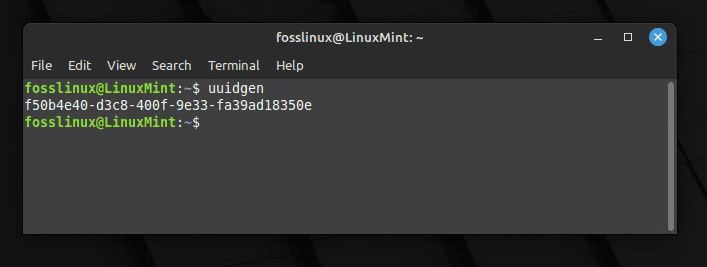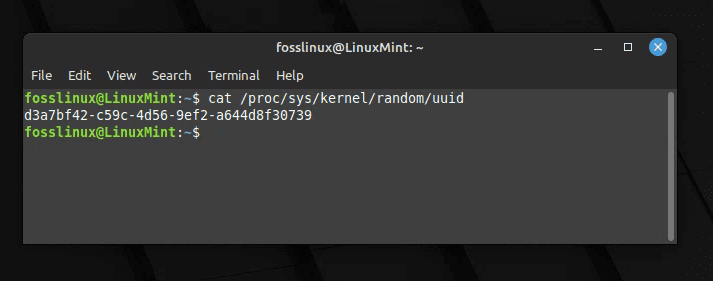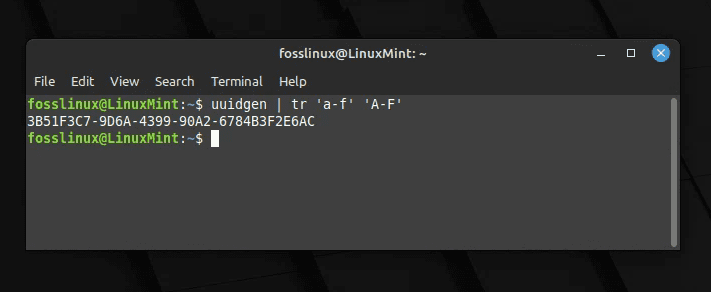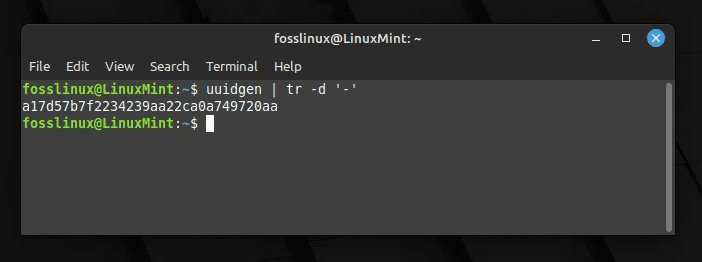In today’s world, generating random strings is not only a trivial task but also a crucial one. With the increasing security threats, one must have a robust mechanism to generate unpredictable and unique strings. Luckily, Bash, the default shell on most UNIX systems, provides a reliable tool called UUID (Universally Unique Identifier) for generating these random strings. UUID is an excellent tool for generating unique and random strings that can be used for various purposes, such as passwords, file names, session IDs, and much more.
In this blog, I will take a deep dive into the world of Bash UUID and guide you on how to harness its power to generate secure and unique strings. So, get ready to explore the exciting world of Bash UUID and boost your security today!
What exactly is UUID?
UUID stands for Universally Unique Identifier. It’s a standard that provides a simple way to create unique IDs. Think of UUIDs as serial numbers that are not just unique to a product, but unique across the world! These identifiers are typically 128-bits long and are almost always unique. When I first encountered UUIDs, I was instantly enamored by their mathematical elegance. But if there’s one thing I don’t like, it’s overly complicated explanations. So let’s keep it simple: UUID is a way to ensure you get a unique string every single time.
Why would you want to use UUID in bash?
a) Security: In web applications, it’s often necessary to create unique session IDs or tokens for users. UUID can ensure that these tokens are not just unique, but also unpredictable.
b) Databases: Whenever you need a primary key for your database table, a UUID can be a great choice. It ensures that even if data from different databases gets merged, the IDs remain unique.
c) File naming: If you’re like me, you’ve faced the daunting task of naming files in a way that they don’t overwrite each other. UUID to the rescue!
d) Just for fun: Yes, sometimes, I play around with commands just because they intrigue me. And generating random strings using bash can be quite amusing!
Generating UUIDs in bash
Bash is a powerful tool. Once I realized the sheer extent of what bash can do, I was hooked. Here’s how you can generate UUIDs right in your bash terminal.
a) Using the uuidgen command
This is my favorite method, mainly because it’s straightforward. Open your terminal and type:
uuidgen

Generating Random String using uuid
Voila! You have yourself a random UUID.
b) Using cat with /proc/sys/kernel/random/uuid
This might sound more complicated, but it’s just another way of doing it. Here’s the magic command:
cat /proc/sys/kernel/random/uuid

Generating a random string using cat and uuid
UUID versions and variants
UUIDs come in different versions and variants. I remember scratching my head when I first came across this concept, but trust me, it’s not as intimidating as it sounds.
a) UUID versions
There are five versions of UUIDs. Each version has its method of ensuring uniqueness:
- Version 1: Based on timestamp and MAC address
- Version 2: DCE security version (with POSIX UIDs)
- Version 3: Name-based using MD5 hashing
- Version 4: Randomly generated
- Version 5: Name-based using SHA-1 hashing
My personal favorite? Version 4. It’s entirely random and doesn’t rely on any external factors.
b) UUID variants
UUID variants denote the layout of the UUID. The most common variant is the one specified by the RFC 4122 standard. But unless you’re diving deep into UUID’s inner workings, you probably don’t need to concern yourself with variants.
Customizing your UUIDs in bash
If you’re anything like me, you love tweaking things to make them your own. The same goes for UUIDs. Here are a couple of tricks:
a) Generating upper-case UUIDs
By default, the uuidgen command generates lower-case UUIDs. But if you fancy upper-case strings, here’s how:
uuidgen | tr 'a-f' 'A-F'

Generating uppercase random strings using uuid
b) Removing dashes
Maybe you’re not a fan of dashes in your UUIDs. No problem!
uuidgen | tr -d '-'

Generating random strings without dashes
A word of caution
While UUIDs are fantastic, they’re not always the best tool for the job. They can be overkill for simple tasks. Plus, they occupy more space than simpler IDs. So while I adore UUIDs, I always evaluate if they’re truly the right fit for the task at hand.
Troubleshooting common UUID issues in bash
Like with all technical tools, sometimes you might run into some hiccups with UUIDs. It’s essential to know how to navigate these challenges. Here are some common issues I’ve encountered and how to troubleshoot them:
a) uuidgen command not found
Problem: When trying to run uuidgen, you get an error that says “command not found.”
Solution: This typically means that the UUID runtime is not installed. On many systems, you can install it using a package manager. For instance, on Debian-based systems, you can use:
sudo apt-get install uuid-runtime
b) Generated UUIDs are not unique
Problem: You’ve noticed that the UUIDs you’re generating are repeating.
Solution: This is highly unlikely with UUIDs, especially version 4. If this happens, ensure that you’re genuinely generating new UUIDs and not mistakenly reading from a cache or a static value.
c) Getting unexpected characters in the UUID
Problem: Your UUID has unexpected characters or doesn’t look like a typical UUID.
Solution: Ensure that you’re not accidentally modifying the output with additional commands or scripts. If using uuidgen, the output should be a standard UUID format.
Frequently Asked Questions (FAQ)
1. Can I use UUIDs as passwords?
While UUIDs are unique and random, they’re not designed as passwords. However, they can be part of a more extensive password generation strategy.
2. How many UUIDs can I generate before they start repeating?
The number is astronomically high, especially for version 4 UUIDs. The likelihood of generating a duplicate is so low that it’s generally considered negligible.
3. Can I decode a UUID to get the original data?
UUIDs, especially the random ones, do not encode data. They are generated randomly or based on specific algorithms. For versions that use names or timestamps, the generated UUID doesn’t allow for decoding to retrieve the original input.
4. Is it safe to use UUIDs in URLs for public-facing web applications?
Yes, many web applications use UUIDs in URLs, especially for resources that need unique identifiers. However, ensure that revealing a UUID doesn’t disclose sensitive information or grant unintended access.
5. Do UUIDs guarantee global uniqueness?
While the probability of a UUID clash is minuscule, especially for version 4, it’s not an absolute guarantee. However, for most practical purposes, they are treated as globally unique.
Wrapping up
In the world of computer programming, UUIDs (Universally Unique Identifiers) are an incredibly useful tool. They can be used to generate unique file names, secure web applications, and provide a secure way of identifying data. Think of UUIDs as a Swiss army knife for unique identifiers – they are versatile and can be used in many different situations. However, it’s important to use them carefully and effectively.
If you need to generate a random and unique string, consider using a UUID and the bash commands that can create them. With the power of UUIDs at your fingertips, you can be confident that your code is more secure and efficient. Happy coding!

